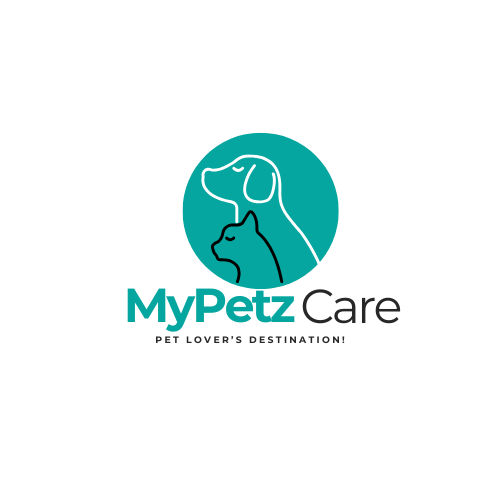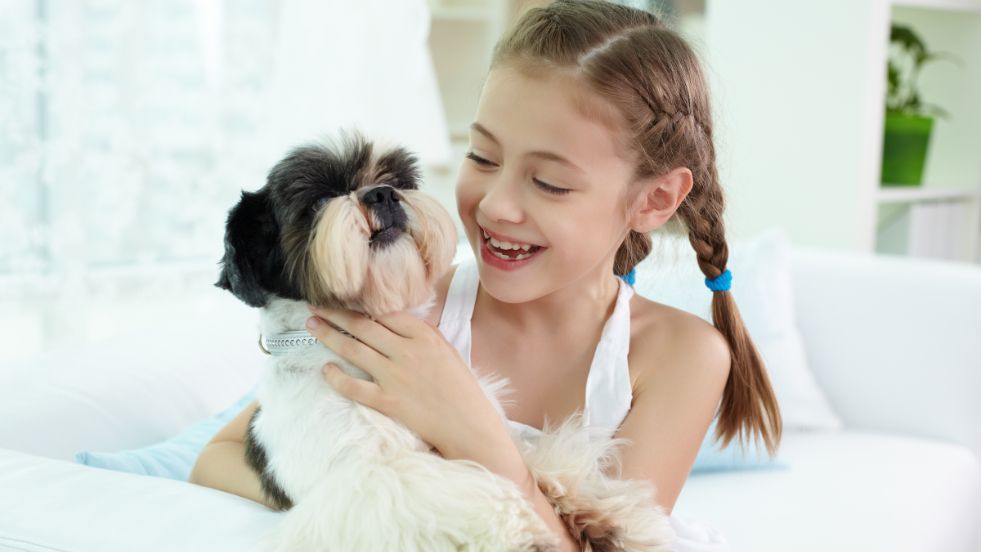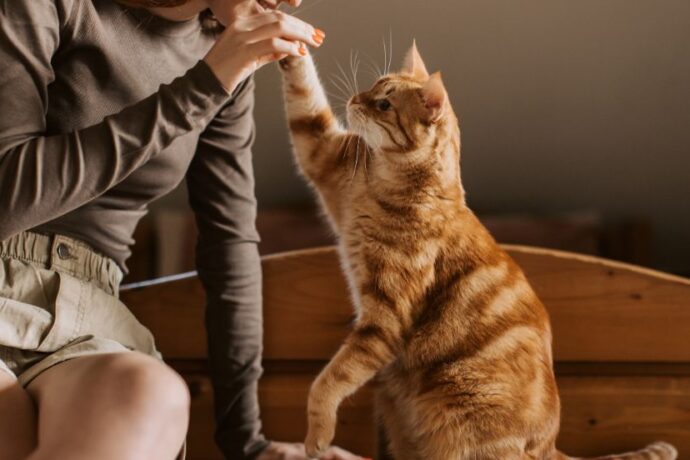For families with children, a dog is more than just a pet—it’s a playmate, a protector, and a loyal friend. However, not every breed is naturally suited for life with kids. A great family dog should be patient, gentle, adaptable, and eager to bond with children. By considering a breed’s temperament, size, activity level, and health profile, parents can find a companion that fits seamlessly into their household.
Let’s explore the 15 best family dogs for kids—each chosen for their kid-friendly personalities, along with practical information about their care.
1. Labrador Retriever – The Classic Family Favorite
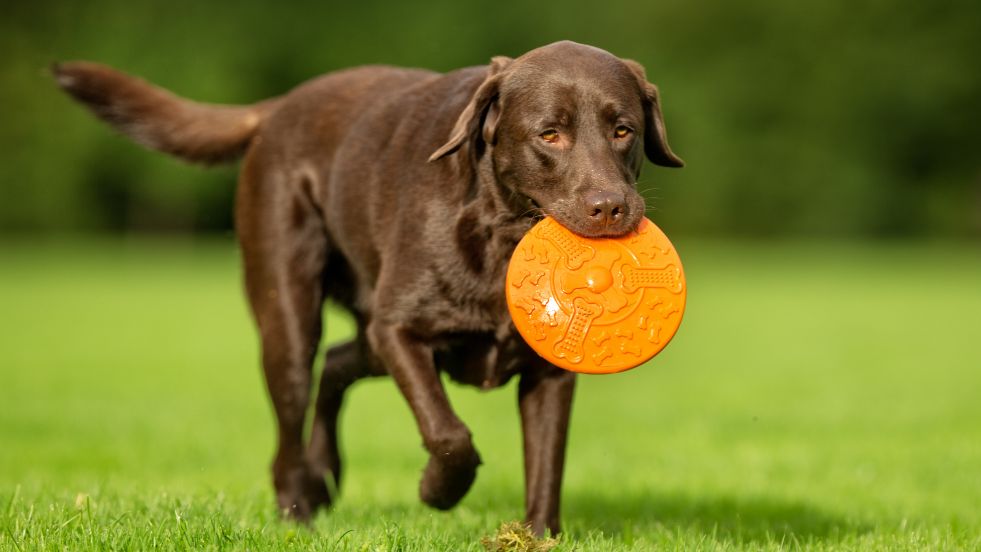
- Height: 21–24 inches
- Weight: 55–80 pounds
- Lifespan: 10–12 years
- Energy Level: High
- Exercise Needs: 1–2 hours daily (walks, fetch, swimming)
- Trainability: Very high; eager to please
- Purpose: Originally bred as water retrievers
- Health Issues: Hip and elbow dysplasia, obesity if not exercised
The Labrador is America’s most popular dog breed for a reason. Labs are friendly, outgoing, and endlessly patient with kids. Their high energy means they thrive in active families that love outdoor adventures.
2. Golden Retriever – Gentle, Loyal, and Patient

- Height: 21–24 inches
- Weight: 55–75 pounds
- Lifespan: 10–12 years
- Energy Level: High
- Exercise Needs: 1–2 hours daily
- Trainability: Excellent; intelligent and eager
- Purpose: Hunting retriever
- Health Issues: Hip dysplasia, cancer, skin allergies
Golden Retrievers are calm, affectionate, and highly tolerant, making them fantastic playmates for children of all ages. They’re also intelligent enough to excel in obedience training and thrive in households that can give them plenty of activity.
3. Beagle – Small, Playful, and Curious

- Height: 13–15 inches
- Weight: 20–30 pounds
- Lifespan: 12–15 years
- Energy Level: Medium to high
- Exercise Needs: Daily walks and play sessions
- Trainability: Moderate; can be stubborn
- Purpose: Scent hound, rabbit hunting
- Health Issues: Ear infections, obesity, epilepsy
Beagles are curious and cheerful, with a gentle temperament that makes them great around kids. Their small-to-medium size is manageable, but families should be ready for their strong scent-driven instincts.
4. Cavalier King Charles Spaniel – The Sweet Lap Dog
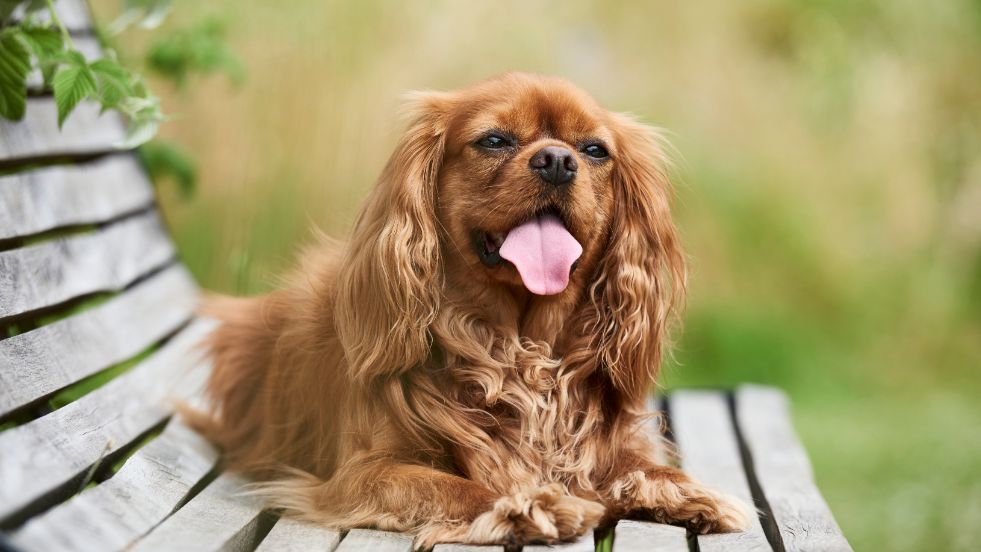
- Height: 12–13 inches
- Weight: 13–18 pounds
- Lifespan: 12–15 years
- Energy Level: Moderate
- Exercise Needs: Moderate daily walks
- Trainability: High; eager to please
- Purpose: Companion breed
- Health Issues: Mitral valve disease, syringomyelia
This affectionate toy spaniel is a wonderful family dog. Cavaliers are adaptable, equally happy playing with kids or snuggling on the couch. They do best in homes where they receive constant companionship.
5. Poodle (Standard or Miniature) – Smart and Hypoallergenic
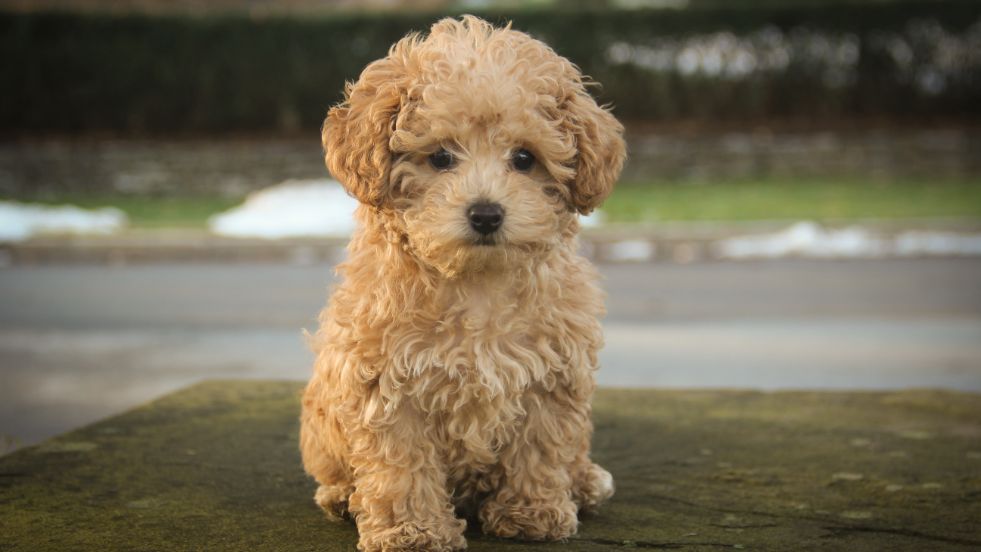
- Height: 10–24 inches (depending on size)
- Weight: 15–70 pounds
- Lifespan: 12–15 years
- Energy Level: Medium to high
- Exercise Needs: Daily walks and mental stimulation
- Trainability: Very high; among the most intelligent breeds
- Purpose: Water retriever
- Health Issues: Hip dysplasia, Addison’s disease, eye disorders
Poodles come in three sizes (toy, miniature, standard) and are hypoallergenic, making them excellent for families with allergies. Highly intelligent and trainable, they thrive when both body and brain are engaged.
6. Irish Setter – Energetic and Friendly
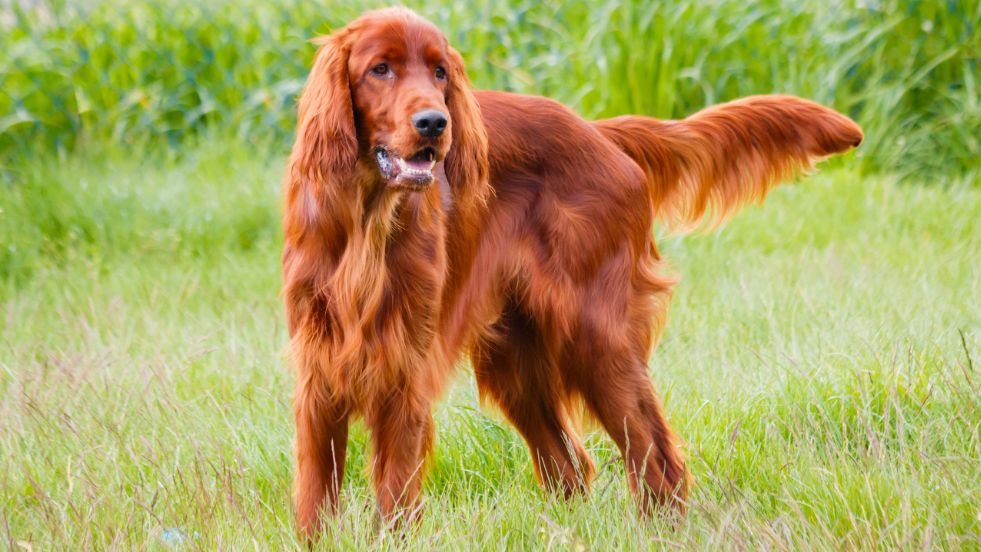
- Height: 25–27 inches
- Weight: 60–70 pounds
- Lifespan: 12–15 years
- Energy Level: Very high
- Exercise Needs: 2+ hours daily
- Trainability: High, but can be excitable
- Purpose: Bird hunting
- Health Issues: Bloat, hip dysplasia
Irish Setters are energetic and joyful, with a love of play that matches well with active children. They do best in families with a large yard or those who enjoy running, hiking, or outdoor sports.
7. Boxer – Playful Protector
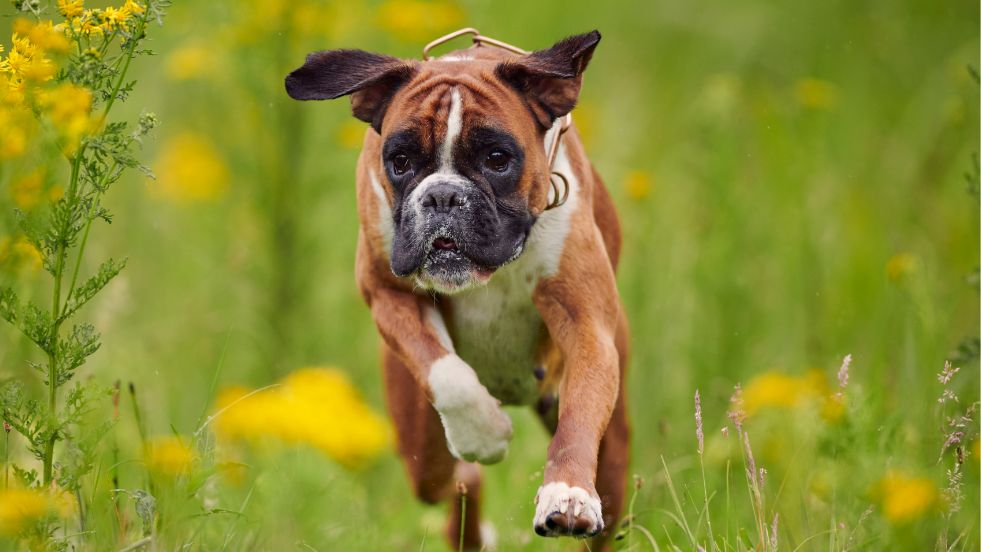
- Height: 21–25 inches
- Weight: 55–70 pounds
- Lifespan: 10–12 years
- Energy Level: High
- Exercise Needs: 1–2 hours daily
- Trainability: Good, but requires patience
- Purpose: Guarding, hunting
- Health Issues: Heart conditions, cancer, hip dysplasia
Boxers are loyal and protective while also being silly, playful companions. Their boundless energy makes them great for families with older, active kids.
8. Collie – Devoted and Gentle
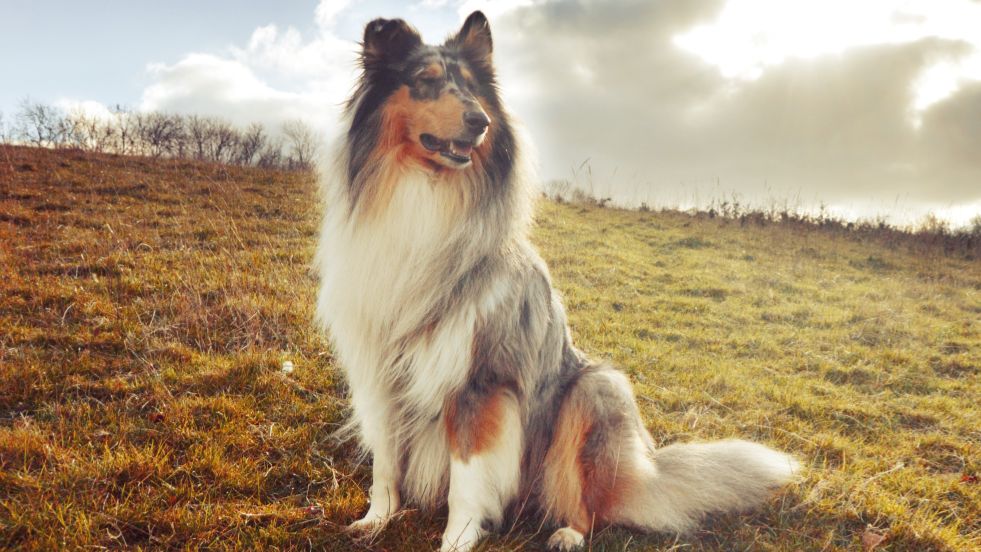
- Height: 22–26 inches
- Weight: 50–75 pounds
- Lifespan: 12–14 years
- Energy Level: Moderate
- Exercise Needs: Daily walks and mental enrichment
- Trainability: Very high; eager to learn
- Purpose: Herding
- Health Issues: Collie eye anomaly, bloat
Collies are famously gentle with children and thrive on family companionship. Their strong herding instinct means they may try to “round up” kids, but with training, they become calm and devoted family pets.
9. Bichon Frise – Cheerful and Low-Shedding
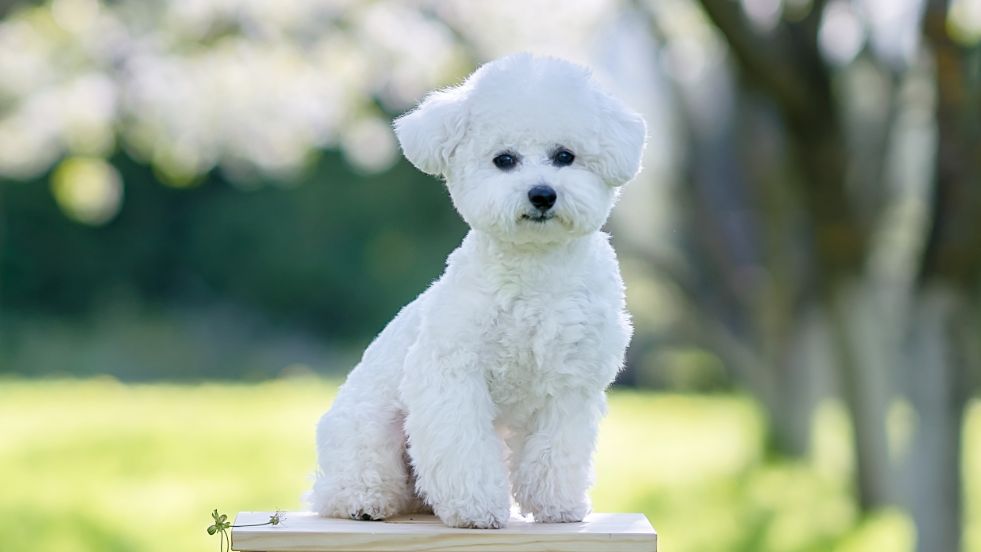
- Height: 9–12 inches
- Weight: 12–18 pounds
- Lifespan: 12–15 years
- Energy Level: Moderate
- Exercise Needs: Daily play and short walks
- Trainability: High
- Purpose: Companion breed
- Health Issues: Allergies, patellar luxation, dental issues
The Bichon Frise is a happy, small companion that loves children and adapts well to apartment living. Their low-shedding coats make them easier on allergies, though grooming is frequent.
10. Newfoundland – The Gentle Giant

- Height: 26–28 inches
- Weight: 100–150 pounds
- Lifespan: 8–10 years
- Energy Level: Moderate
- Exercise Needs: Daily walks, swimming is ideal
- Trainability: Good, but slow-maturing
- Purpose: Water rescue, working dog
- Health Issues: Hip dysplasia, heart disease
Known as “nanny dogs,” Newfoundlands are incredibly gentle with children despite their massive size. They require space and careful management due to their size but are famously patient and loving.
11. Bulldog – Easygoing and Affectionate
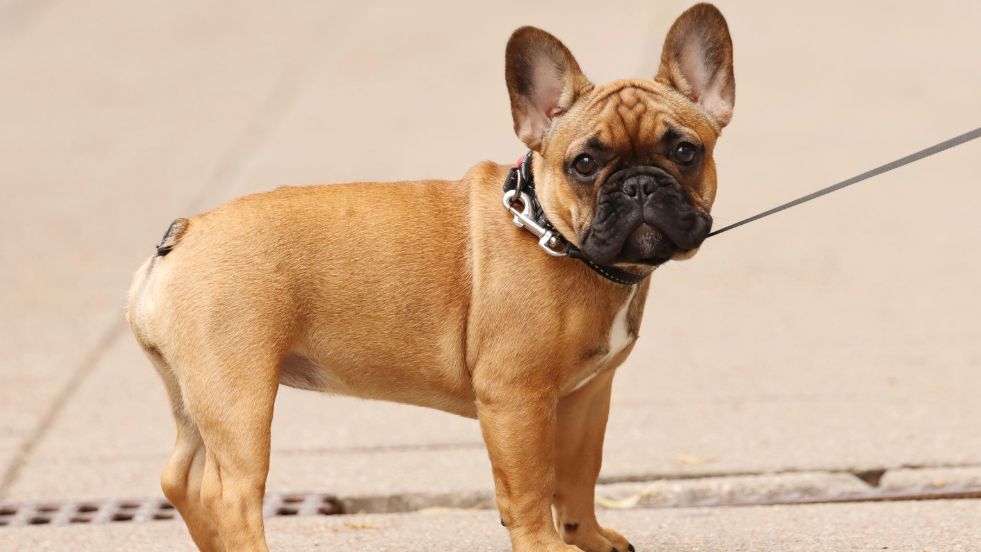
- Height: 14–15 inches
- Weight: 40–50 pounds
- Lifespan: 8–10 years
- Energy Level: Low
- Exercise Needs: Minimal; short walks daily
- Trainability: Moderate
- Purpose: Originally bull-baiting, now companion
- Health Issues: Breathing problems, hip dysplasia, skin issues
Bulldogs are mellow and affectionate, making them excellent companions for children in more laid-back households. However, their health concerns mean families must commit to proper care.
12. Vizsla – Loving and Active
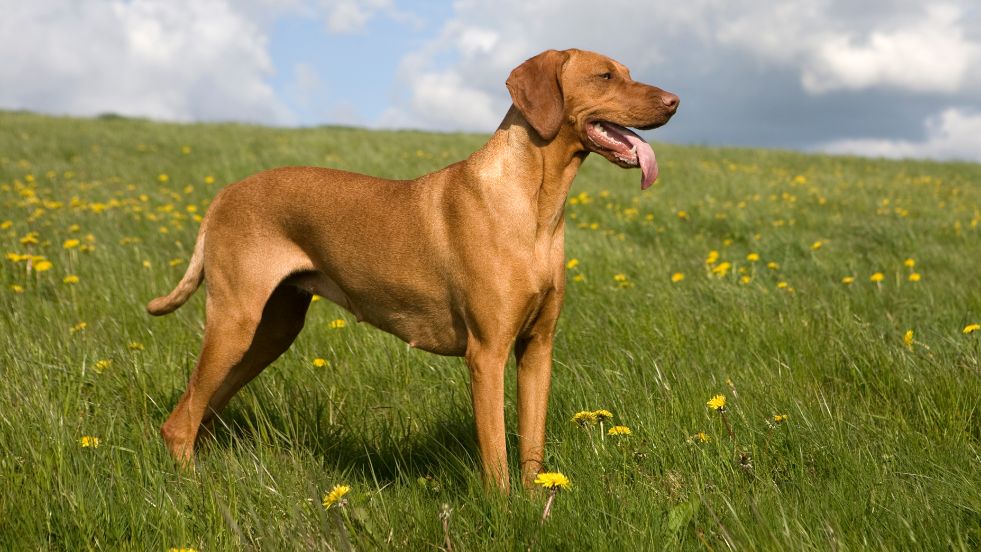
- Height: 21–24 inches
- Weight: 45–65 pounds
- Lifespan: 12–14 years
- Energy Level: Very high
- Exercise Needs: 2+ hours daily
- Trainability: Excellent
- Purpose: Hunting and pointing dog
- Health Issues: Epilepsy, hip dysplasia
Vizslas are sometimes called “velcro dogs” because of their strong bond with their families. They are affectionate, energetic, and thrive with active families who enjoy outdoor adventures.
13. Cocker Spaniel – Gentle and Adaptable
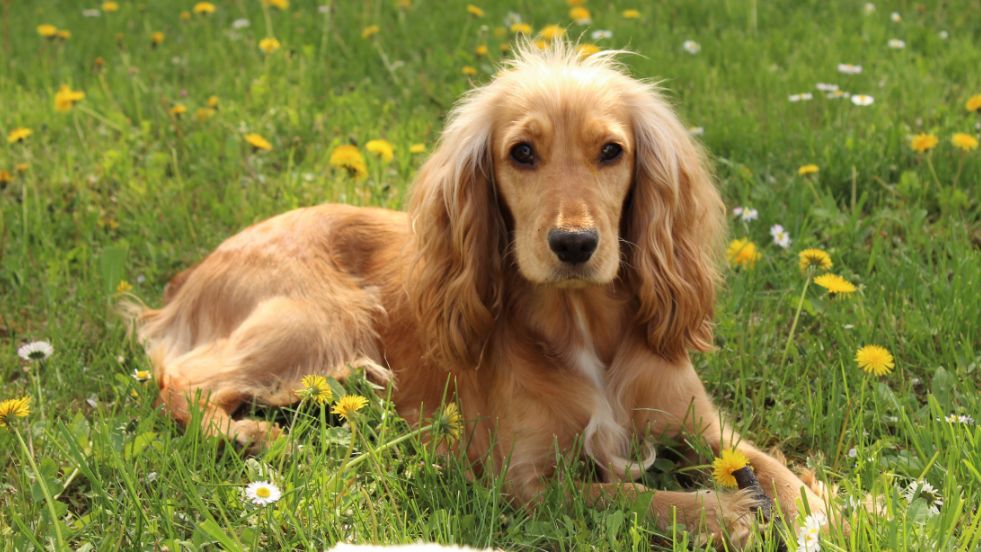
- Height: 13–15 inches
- Weight: 20–30 pounds
- Lifespan: 12–15 years
- Energy Level: Moderate
- Exercise Needs: Daily play and walks
- Trainability: High
- Purpose: Bird hunting
- Health Issues: Ear infections, eye problems
Cocker Spaniels are known for their gentle temperament and affectionate nature. They are small enough for children to handle, but energetic enough to enjoy playtime outdoors.
14. Bernese Mountain Dog – Calm and Affectionate
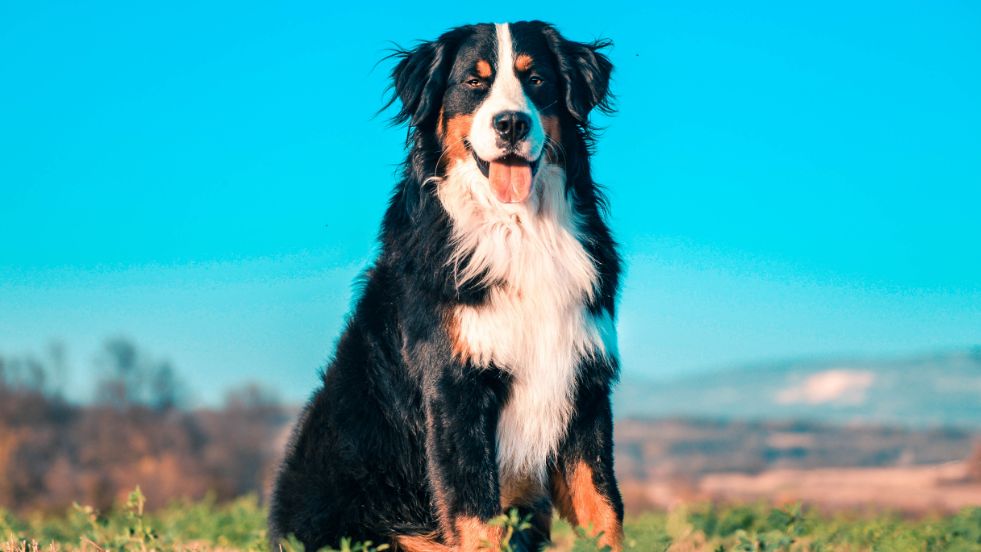
- Height: 23–27 inches
- Weight: 70–115 pounds
- Lifespan: 7–10 years
- Energy Level: Moderate
- Exercise Needs: Daily walks and outdoor play
- Trainability: Good, gentle but sometimes slow to mature
- Purpose: Draft and farm work
- Health Issues: Cancer, hip dysplasia, bloat
These large, calm dogs are affectionate and gentle, making them wonderful family pets. Their shorter lifespan is a drawback, but their loyalty and sweetness make them unforgettable companions.
15. Shih Tzu – Small, Friendly, and Adaptable
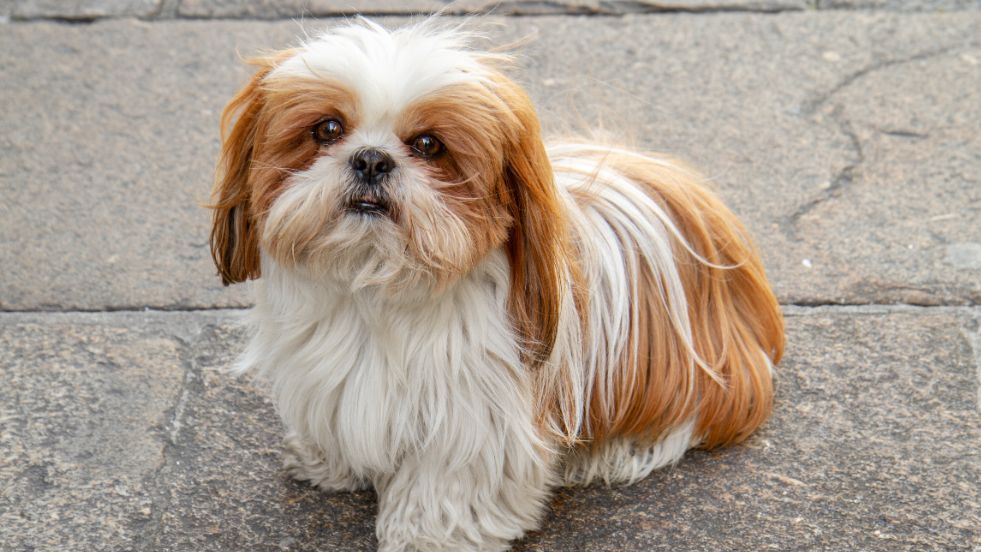
- Height: 9–10 inches
- Weight: 9–16 pounds
- Lifespan: 10–16 years
- Energy Level: Low to moderate
- Exercise Needs: Short daily walks and indoor play
- Trainability: Moderate
- Purpose: Companion lap dog
- Health Issues: Brachycephalic breathing issues, dental problems
Shih Tzus are charming, affectionate lap dogs that thrive in families with young children. Their small size makes them ideal for apartments, and they love being close to their people.
Science Behind Dogs and Child Development
According to a 2020 study in Pediatric Research, children growing up with family dogs often demonstrate better emotional well-being, empathy, and social behavior (1)(2). The companionship of a dog encourages responsibility and physical activity while also reducing stress and anxiety in kids (3).
FAQs About Family Dogs for Kids
1. What’s the safest dog breed for toddlers?
A. Gentle, patient breeds like Golden Retrievers, Labradors, and Cavaliers are excellent choices for toddlers.
2. Are large dogs safe around small children?
A. Yes, many large breeds like Newfoundlands and Bernese Mountain Dogs are famously gentle. However, supervision is always essential due to their size.
3. Should I get a puppy or an adult dog for my kids?
A. While puppies can be playful, they require intensive training. Adult dogs with known temperaments may be easier for families with very young children.
Final Thoughts:
The best dog for your family depends on your lifestyle, space, and activity level. From the loyal Labrador to the gentle Newfoundland or the playful Beagle, there’s a breed that can fit nearly every type of household. With the right match, your children can grow up with a companion that teaches love, responsibility, and friendship—building memories that last a lifetime.
References:
1. Are children and dogs best friends?
2. Children and dogs
3. Association between Early Life Child Development and Family Dog Ownership
